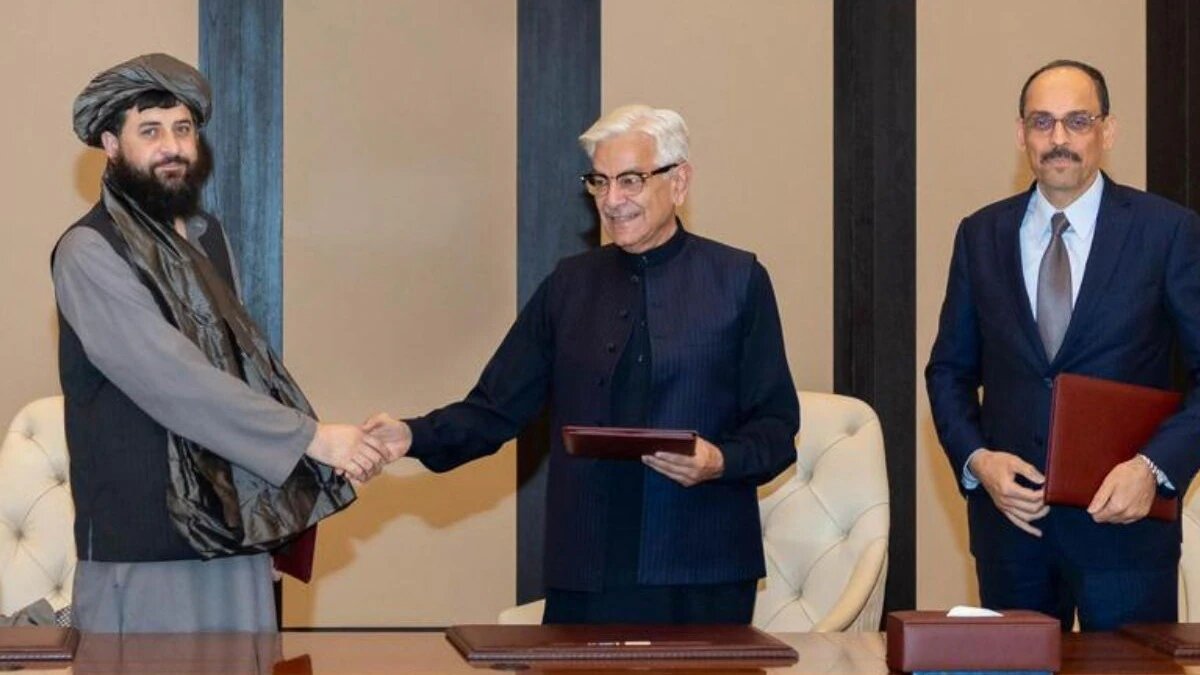Fragile armistice between Pakistan and Afghanistan after deadly clashes

Pakistan and Taliban-ruled Afghanistan announced an immediate ceasefire on Sunday after emergency talks mediated by Qatar and Turkey, a move intended to halt the worst cross-border fighting since the Taliban’s 2021 takeover.
Delegations led by Pakistan’s defense minister, Khawaja Muhammad Asif, and Afghanistan’s defense chief, Mullah Muhammad Yaqoob, agreed to refrain from targeting each other’s forces, civilians, or critical infrastructure, and to meet again in Istanbul on October 25 to firm up verification measures.
The truce follows a week of exchanges sparked by Islamabad’s strikes on alleged militant camps and retaliatory Taliban attacks along the disputed Durand Line. Afghan officials and the U.N. reported dozens of civilian deaths and hundreds wounded, prompting urgent calls to protect noncombatants.
Each side framed the violence through competing narratives: Pakistan said it struck “verified” militant sites used by groups such as the Tehrik-e-Taliban Pakistan and repelled attacks during the ceasefire window; Taliban insisted Afghanistan would not be used to launch assaults on Pakistan while accusing Islamabad of hitting civilian areas. Both statements were echoed in the Doha negotiations.
The conflict’s human and cultural fallout was stark — the Afghanistan Cricket Board said three domestic players were killed in Paktika province and pulled the national team from a scheduled tri-series in Pakistan, an emblematic sign of how deeply the clashes have fractured ties.
Analysts warn the ceasefire addresses symptoms, not roots: the porous 1,600-mile frontier, decades of mutual suspicion, and militant networks that transcend borders.
The Doha deal offers breathing room — but without sustained, verifiable steps on militants and border management, the armistice may be only a pause before the next flare-up.
